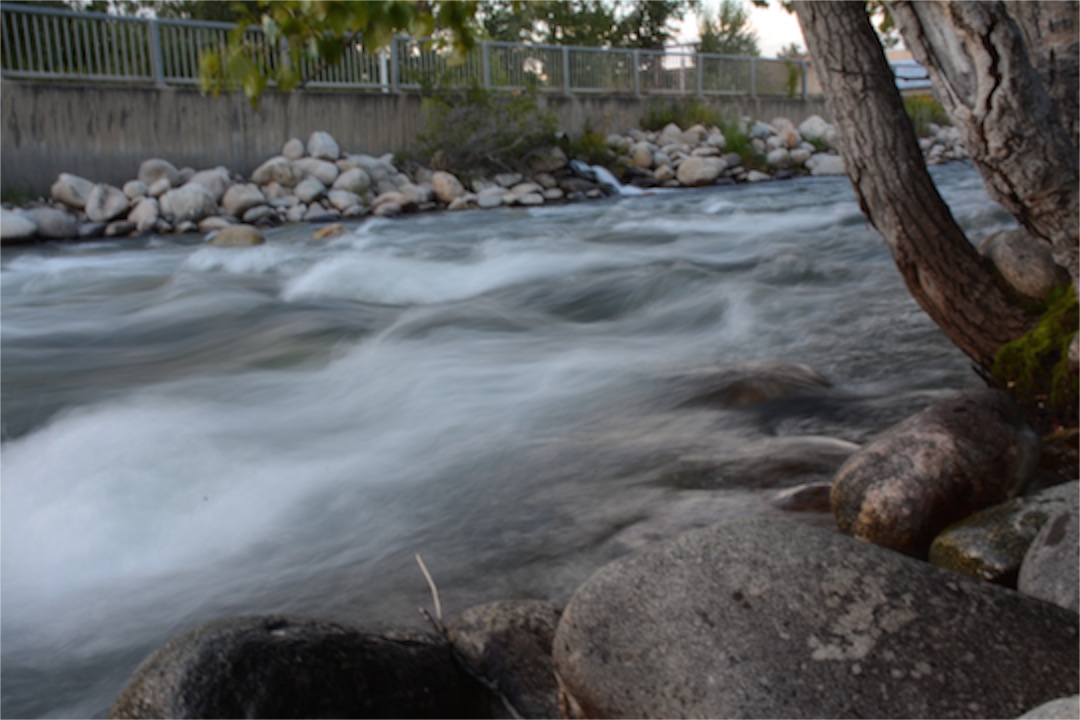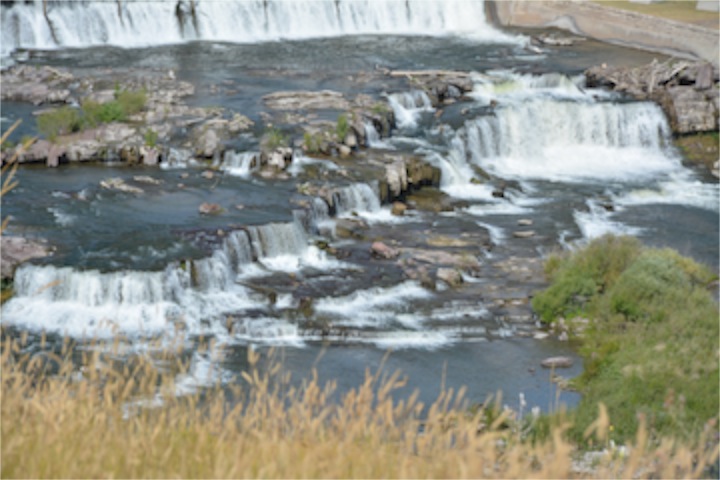The water of life
16/08/14 05:04

Scientists are rarely poetic or philosophical, but when they talk about water, they can sometimes sound a bit like the way I write. The intimate relationship between life and water has led scientists to invest incredible resources in searching for water on the Moon and Mars. They know that without water there can be no life as we know it.
Our planet is rich in this precious resource. The pictures of the earth taken from space reveal the blue of oceans and the huge percentage of the earth’s surface that is covered with water.
We are mostly water. The cells of our bodies are awash in the stuff. Without water, we don’t exist.
So it makes sense that we are fascinated by water.
I awoke this morning to the sound of water. Camped here next to Rock Creek on the outskirts of Red Lodge, Montana, the sound of the water rushing over the rocks is deeply familiar to me. It sounds like home. The sound is very similar to the rush of the Boulder River near my childhood home. The Boulder is a bit larger, but our campsite is a bit closer to the river.
Our campsite is just a few miles up stream from where we used to throw rocks into the creek behind my grandfather’s service station. Last evening when our grandson was tossing rocks into the creek, we were within sight of that place, though the building is now gone and the town has changed.
Rock Creek and the Boulder are close to their mountain sources. Follow either river upstream and you will watch other creeks flowing into the main stream. As you go up the river becomes a creek and the creek becomes a stream. The land rises steeply in both cases. Before long you’ll find yourself at 7,000 and then 10,000 feet above sea level. Up in the high country the stream becomes a trickle and if you follow it far enough you will find yourself next to the drip, drip, drip of melting snow and ice at the top of the mountains.
We are near to the low point of the snowfields at the source of the rivers in this part of the world. The days are near their hottest of the year and the snow is quickly fading. But it won’t be long - less than a month - before the snows begin to fall again. For now the creeks and rivers are supplemented by nearly daily thundershowers in the high country. The rain and snow mix to keep the water flowing.
Some of those raindrops and snowflakes have traveled a long ways before falling on the Montana mountains. They travel as groups of water droplets suspended in the air. Scientists use radar to track the movement of the clouds. We know that some of those droplets were once part of the Pacific Ocean before they moved to the surface and were evaporated in the bright warmth of a sunny day. In the ocean they flowed and swirled with the currents, some brushing on the shores of distant lands and mixing with the waters of a thousand rivers that rush to the sea.
I grew up next to the clear mountain streams. It is no longer true, but when I was a child, you could safely drink the water of Rock Creek and the Boulder without filtering it. The cold water was refreshing and wonderful. We took a bit of it and made it a part of us. And, like the riverbeds, the water flows through us, coming and going.
If you follow Rock Creek or the Boulder the other direction, they both run into the Yellowstone, the longest unaltered riverbed in the United States. The Yellowstone comes out of Yellowstone Lake in the Park and makes its way across Montana and flows into the Missouri just over the North Dakota border. There are a few irrigation diversions in the river, but no dams interrupt its flow. The explorers Lewis and Clark were aware that the Yellowstone was a great waterway. On their way upstream the entire party followed the Missouri but on the return trip, Clark took a portion of the Corps of Discovery over the pass to explore the Yellowstone while Lewis headed north on the Missouri. Near the place where the Boulder empties into the Yellowstone, they came upon cottonwood trees that were large enough to make dugout canoes and from there they were able to journey by water back to Missouri. The journey of the Corps was by water on the Missouri all the way to the headwaters where the Madison, Jefferson and Gallatin rivers come together. They only had to leave the water briefly to portage the Great Falls of the Missouri. But from that point, it was overland until they reached the Columbia Basin where the waters flow west to the Pacific.

The rivers feel like old friends to me. It is as if I have known the Boulder and Rock Creek and the Yellowstone and the Missouri all of my life. I have floated down them on inner tubes and in canoes and drift boats and rafts. I have felt the coolness of their waters on my skin and I have dipped into them and drunk of their flow.
I have followed the Missouri all the way to where it flows into the Mississippi, but I have yet to go to the Delta where the Mississippi empties into the Gulf of Mexico. That trip is being saved for another time.
But today I listen to the water rushing over the boulders a few feet from our campsite and can imagine that drops of water are rushing by on their way from the Pacific to the Gulf and on to the Atlantic. Some of them may even make their way around the southern tip of Africa and into the Indian Ocean. Some may flow all the way to the Pacific and start their trip all over again.
We come from water and are shaped by water and to water we return. The sound of the river is the sound of life itself. And it is a glorious lullaby at night and a delightful greeting in the morning.